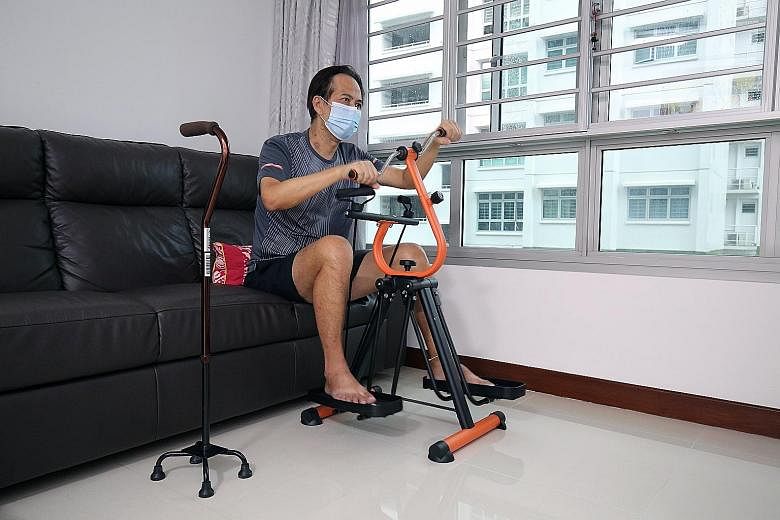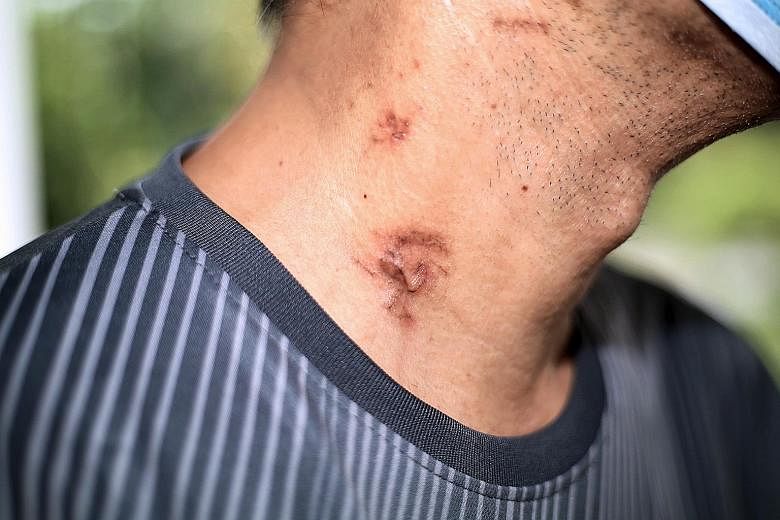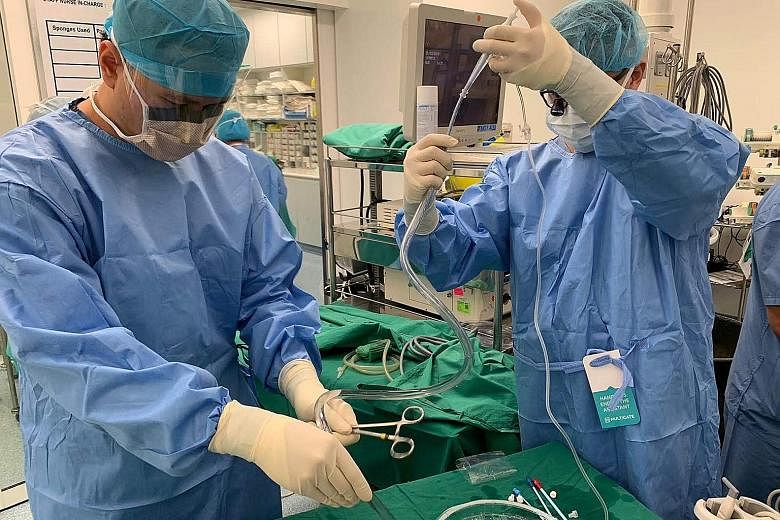For 42 days, Mr Toh Kai Kiat's family endured a roller-coaster ride of emotions.
"We went from heaven to hell as he got better, only to have our hopes dashed a few days later, and then back up again," his son told The Sunday Times on Friday.
Mr Toh, with his failing lungs, was one of the most seriously ill Covid-19 patients in Singapore.
But man and machine pulled him from death's door and on April 22, he was discharged from hospital.
One of the worst times was the seven days when he was hooked to a machine that acted as his artificial lungs.
And on another occasion when his heart gave up, a team from the National University Hospital (NUH) fought for 16 crucial minutes to get it going, and subsequently nursed him back to health.
The lung machine is called extracorporeal membrane oxygenation (ECMO) life support, which takes over the role of a person's diseased lungs, allowing him to recover.
It sucks out blood, which is oxygenated artificially outside the body before being returned into the body.
The 54-year-old patient, who is case 188, became the first Covid-19 NUH patient on ECMO to be discharged, making a full recovery from Covid-19 after being hospitalised for 42 days.
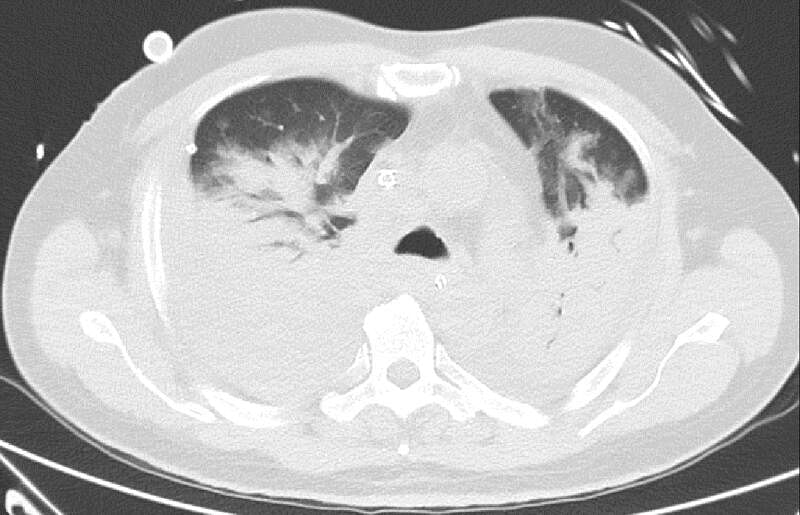
Mr Toh was admitted to Khoo Teck Puat Hospital (KTPH) on March 12 and confirmed to have the virus later that afternoon.
Two days later, he was intubated and proned (placed on his front) owing to worsening levels of oxygen in his blood.
His condition, however, failed to improve and he was taken to NUH on March 17 to receive ECMO treatment.
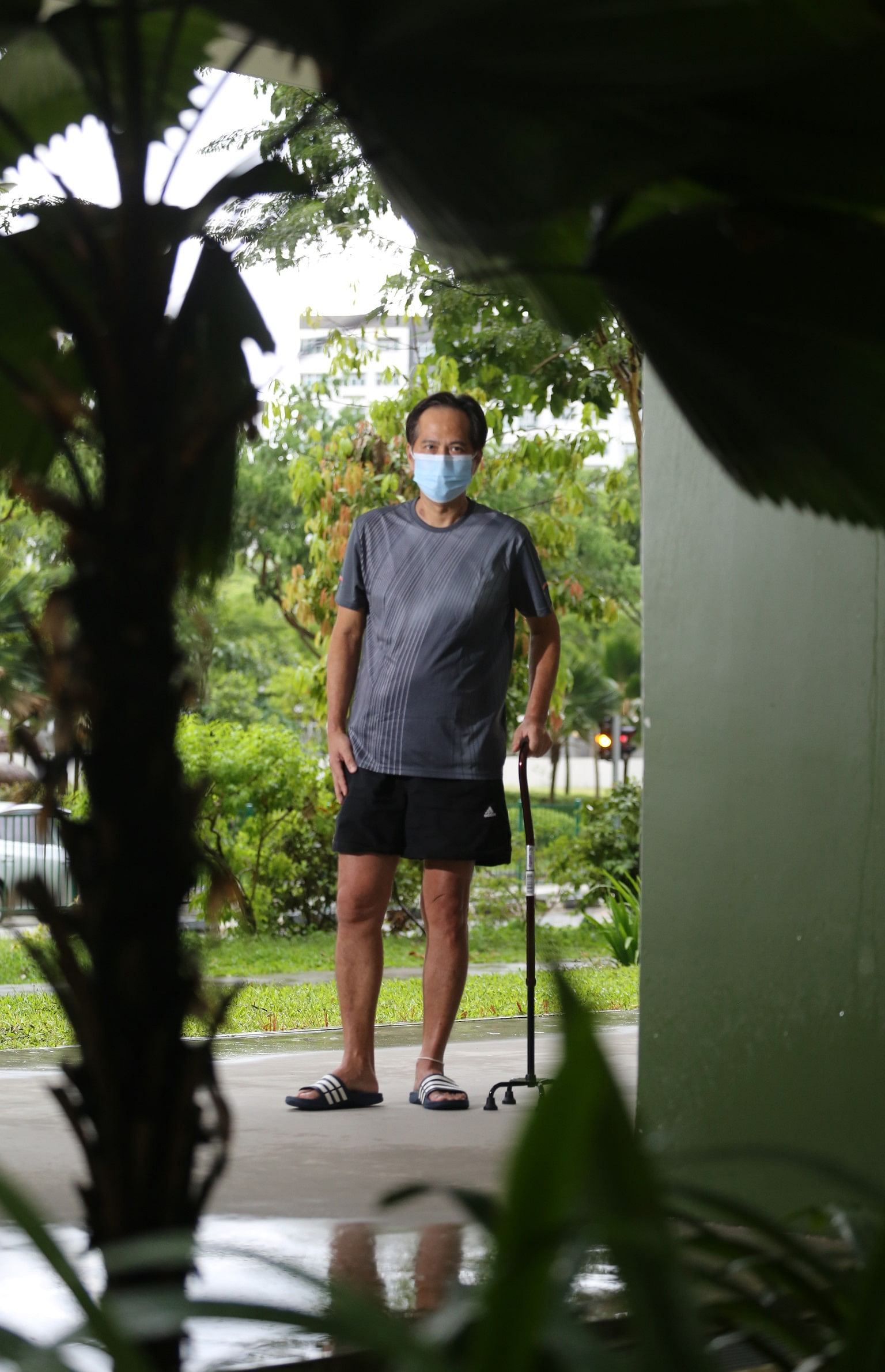
Only two public hospitals here, NUH and Singapore General Hospital, have ECMO capabilities.
While being initiated to ECMO, Mr Toh went into cardiac arrest, during which his heart stopped beating for 16 minutes and he was kept alive through cardiopulmonary resuscitation.
This prompted the team to place him on a rarely used form of ECMO - known as venoarteriovenous ECMO - which provides support to both the heart and the lungs.
Mr Toh, who is in the jewellery trade, is likely to be an imported Covid-19 case, as he had travelled to Thailand for work from Feb 23 to March 1.
He reported the onset of symptoms on March 7 and had sought treatment at two general practitioner clinics on March 7 and 9.
He has little recollection of the harrowing experience, relying on what his wife and son have told him.
"When I woke up in the hospital many days later, I could not talk, there were a lot of tubes in me, a lot of equipment, I felt like dying," he told reporters on Friday.
His family members, who were quarantined after he tested positive for Covid-19, received daily updates on his condition from NUH.
Given the exceptional circumstances surrounding his case, the Health Ministry and NUH made special arrangements for his distraught wife and son to visit him on March 17.
He had just been transferred from KTPH to NUH and they were told the following 12 hours were critical, his wife recalled.
"We had no idea if he would survive, hence we requested to visit him," she added.
She and her son saw him for a few minutes from behind a glass panel and spoke to the medical team.
The lack of oxygen in his blood also affected other organs in his body, such as his kidneys and liver, causing him to require dialysis treatment temporarily.
Finally, he got better and was removed from the ventilator on March 26, and transferred to the general isolation ward on April 6.
Mr Toh, who spent his birthday in hospital, is very grateful to be alive.
"I want to thank all the healthcare workers who took care of everything and even the emotional needs of my family," he said.
"We have to take this disease very seriously. I am someone who is generally healthy and active, yet this happened to me, and so it can happen to anyone.
"I am very thankful to be given this new lease of life."
